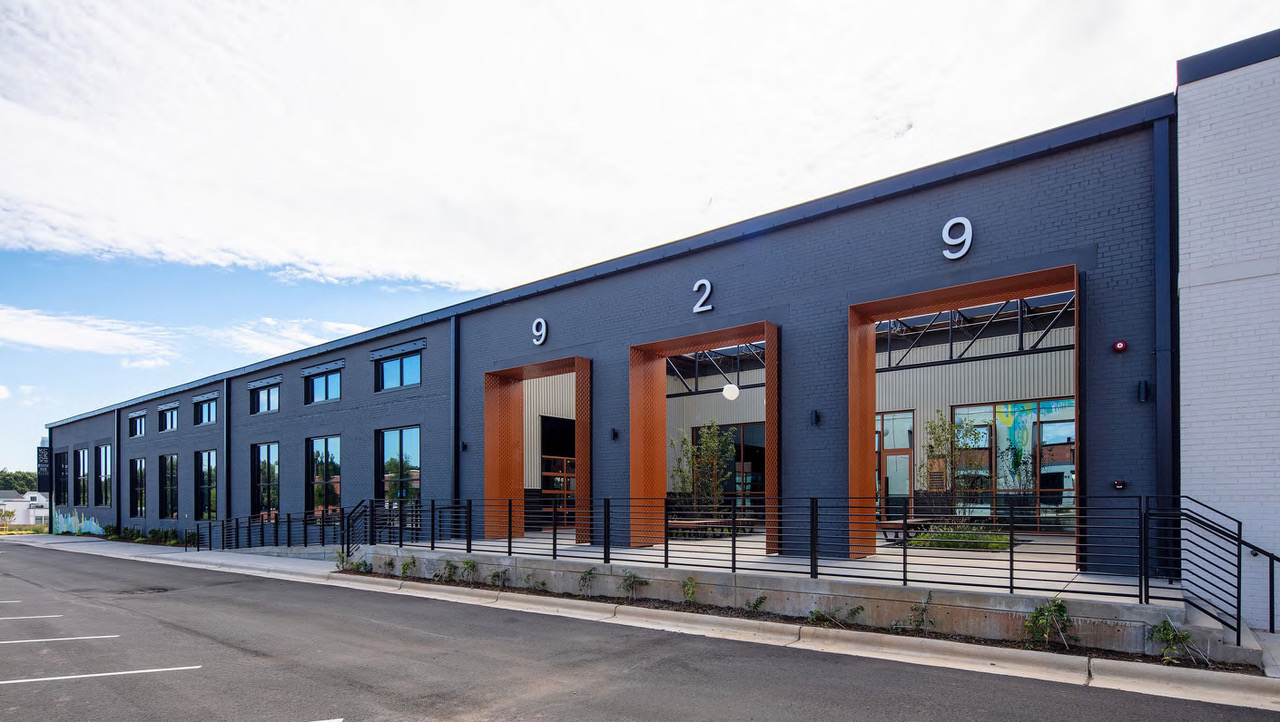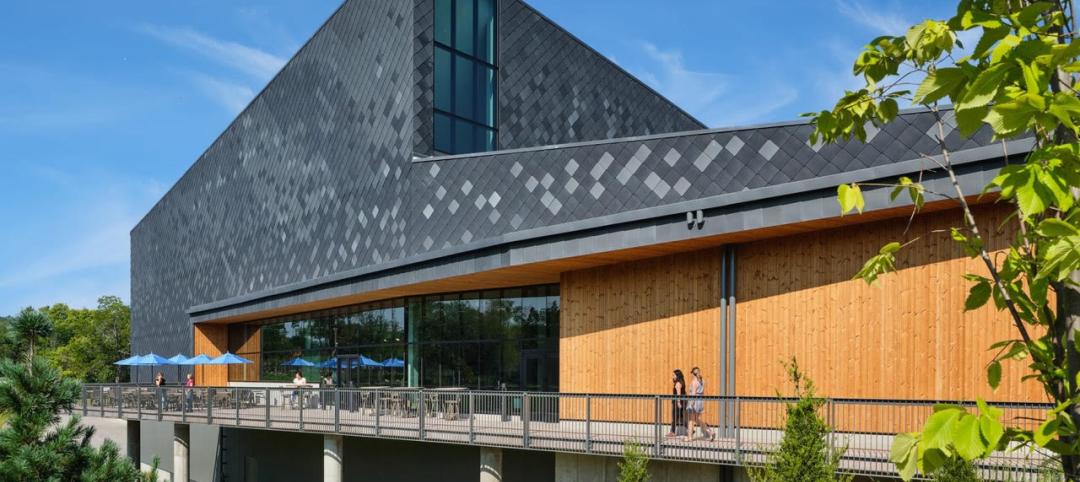Swinerton, the national general contractor, expanded into the Southeast U.S. in 2018. Since then, the firm’s Carolinas Division has generated at least $359 million in revenue from commercial construction projects that have run the gamut from corporate interiors and multifamily to healthcare and mass timber builds.
Of that total, Swinerton’s Carolinas Division is on pace to generate $120 million in revenue in 2023 alone. Among its projects nearing completion is the adaptive reuse within a former warehouse building in West Charlotte, N.C.’s Lower Tuck mixed-use development for office space: a $2.8 million renovation to create a 28,000-sf, two-story space that houses an international nonprofit disaster relief organization; and a nearly $1 million 9,000-sf expansion for an existing tenant, the tool manufacturer Positec, that adds offices, a conference room, and a break room.
These two upgrades were performed by the division’s Special Projects team. Each of Swinerton’s 20 offices nationwide has its own Special Projects crews, which allow the firm to position itself as a “community based GC” that is run like a boutique business, says Jason Hlewicki, Director of Special Projects for the Carolinas Division.
What constitutes a “special project,” however, is a little amorphous. Hlewicki says his special projects team is not separate from the division’s other employees. Nor is a project deemed “special” because of its size or cost: Hlewicki says his team has completed a renovation for a local restaurant group in 56 days, and has also worked on 100,000-sf $40 million jobs.
While special projects run across Swinerton’s practices, their designation “depends on the project’s characteristics and makeup,” he explains. Examples include commercial interiors, off-hours work, medical office building interiors, classroom renovations, and sports complexes.
Division serves a growing region
Hlewicki says that having a special projects team within a division allows Swinerton to be nimble and to pivot when needed, partly by pairing “the best possible staff with the project.” Another competitive advantage, he says, includes Swinerton being a self-performing GC whose crews are made up of its employees. (Swinerton is employee-owned.)
The Carolinas Division completes between 20 and 30 special projects annually, and therefore it deals with a lot of different AEC firms and developers. (Third & Urban is the developer of the Lower Tuck project.) it’s been Hlewicki’s experience that special projects allow Swinerton more room for creativity, especially when the firm is brought on early as part of the project’s design-build team.
The Carolinas have enjoyed a steady influx of people and businesses in recent years, a trend that’s expected to continue going forward. Hlewicki says demand for his firm’s services, both for new builds and renos, “is moving in an exciting direction.” Those services include Swinerton’s Facilities Solution program, a national platform that provides maintenance to existing clients using dedicated crews. “This keeps Swinerton top of mind with our customers,” says Hlewicki.
Related Stories
Office Buildings | Mar 27, 2024
A new Singapore office campus inaugurates the Jurong Innovation District, a business park located in a tropical rainforest
Surbana Jurong, an urban, infrastructure and managed services consulting firm, recently opened its new headquarters in Singapore. Surbana Jurong Campus inaugurates the Jurong Innovation District, a business park set in a tropical rainforest.
Cultural Facilities | Mar 27, 2024
Kansas City’s new Sobela Ocean Aquarium home to nearly 8,000 animals in 34 habitats
Kansas City’s new Sobela Ocean Aquarium is a world-class facility home to nearly 8,000 animals in 34 habitats ranging from small tanks to a giant 400,000-gallon shark tank.
Cultural Facilities | Mar 26, 2024
Renovation restores century-old Brooklyn Paramount Theater to its original use
The renovation of the iconic Brooklyn Paramount Theater restored the building to its original purpose as a movie theater and music performance venue. Long Island University had acquired the venue in the 1960s and repurposed it as the school’s basketball court.
Green | Mar 25, 2024
Zero-carbon multifamily development designed for transactive energy
Living EmPower House, which is set to be the first zero-carbon, replicable, and equitable multifamily development designed for transactive energy, recently was awarded a $9 million Next EPIC Grant Construction Loan from the State of California.
Museums | Mar 25, 2024
Chrysler Museum of Art’s newly expanded Perry Glass Studio will display the art of glassmaking
In Norfolk, Va., the Chrysler Museum of Art’s Perry Glass Studio, an educational facility for glassmaking, will open a new addition in May. That will be followed by a renovation of the existing building scheduled for completion in December.
Sustainability | Mar 21, 2024
World’s first TRUE-certified building project completed in California
GENESIS Marina, an expansive laboratory and office campus in Brisbane, Calif., is the world’s first Total Resource Use and Efficiency (TRUE)-certified construction endeavor. The certification recognizes projects that achieve outstanding levels of resource efficiency through waste reduction, reuse, and recycling practices.
Office Buildings | Mar 21, 2024
Corporate carbon reduction pledges will have big impact on office market
Corporate carbon reduction commitments will have a significant impact on office leasing over the next few years. Businesses that have pledged to reduce their organization’s impact on climate change must ensure their next lease allows them to show material progress on their goals, according to a report by JLL.
Adaptive Reuse | Mar 21, 2024
Massachusetts launches program to spur office-to-residential conversions statewide
Massachusetts Gov. Maura Healey recently launched a program to help cities across the state identify underused office buildings that are best suited for residential conversions.
Legislation | Mar 21, 2024
Bill would mandate solar panels on public buildings in New York City
A recently introduced bill in the New York City Council would mandate solar panel installations on the roofs of all city-owned buildings. The legislation would require 100 MW of solar photovoltaic systems be installed on public buildings by the end of 2025.

















